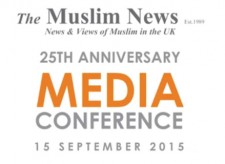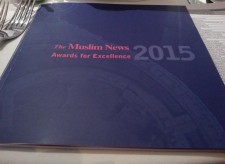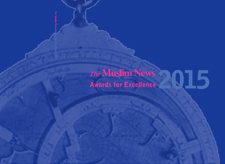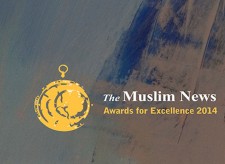Nusrat Ghani (Credit: Flickr Commons)
Dr Amina Easat-Dass
Conservative MP, Nusrat Ghani, sent shockwaves through political and social arenas in January when she announced that she had been sacked as junior Minister for Transport in early 2020 on the basis that her “Muslimness” had made some in the party feel uncomfortable.
The Kashmiri-born MP for Wealden, East Sussex, made history in January 2018 when she became the first Muslim woman minister to speak from the Commons dispatch box. Ghani continues to remain one of a few Muslim women MPs in the UK Parliament.
This row is not Ghani’s first publicised experience of Islamophobia and racism as a serving MP. In 2017, she received a barrage of emails from former Tory party member and activist, David Proudfoot, praising Enoch Powel’s Rivers of Blood Speech, decrying the presence of non-ethnically British parliamentarians as he argued that “the British have passively succumbed to the Muslim invasion.”
However, Islamophobia is not limited to Ghani’s experiences, rather, it is widespread in the party; notably, Tory party leader Boris Johnson, who in his 2018 Daily Telegraph column, likened Muslim women who wear the face veil to “letterboxes” resulting in a 375 per cent increase in Islamophobic hate crimes in the following week.
In response to her 2020 sacking, Ghani’s fellow Conservative Party colleague, MP Michael Fabricant, trivialised Ghani’s experiences of Islamophobia, stating: “she’s hardly someone who’s, obviously Muslim,” continuing, “I had no idea what religion she is… but with her it isn’t apparent, so it does seem a rather lame excuse to me that she claims she was sacked because of that.”
While others called for Ghani to push for an inquiry and the PM declined to get involved, Fabricant’s comments highlight the ways racism and sexism are often downplayed in society, not least in politics.
In recent years, allegations of Islamophobia in the Tory Party have been numerous, ranging from public calls for an independent inquiry and, even, allegations coming from key members of the party, such as Baroness Sayeeda Warsi, who has said Islamophobia has “poisoned the party” and is a “deep-rooted” problem in the party, also pointing out that to survive in the party, Muslims needed to “keep our Muslim heads down”, adding that their Muslimness was only relevant when it could be weaponised against Muslim communities.
What does this banalisation of Islamophobia in the governing UK party mean? In a bid to promote an understanding of Islamophobia, the 2018 published UK All-Party Parliamentary Group on British Muslims’ report ‘Islamophobia Defined’ argues that “Islamophobia is rooted in racism and is a type of racism that targets expressions of Muslimness or perceived Muslimness.”
Although the definition has been endorsed by a large number of local councils and key political parties, the Conservative Party has been criticised for refusing to accept it. Criticism of the definition often stems from the argument that Muslimness does not constitute a ‘race.’ However, whilst Muslimness does not constitute a monolithic block, Islamophobia racializes Muslimness as though it does; essentially framing Muslims as all being the same.
Although statistics highlight that appearing visibly Muslim (for example, wearing hijab or having a beard) correlates with increased experience of Islamophobic hate crimes, the above definition is useful as it also highlights the broad range of those who might be targeted by Islamophobia – including those who aren’t Muslim, and even practices associated with “Muslimness”, exemplified by the ban on ritual (read: halal and kosher) slaughter in Belgium.
Ghani’s experiences show us that the extent to which one’s “Muslimness” is apparent or not (contrary to what Fabricant would suggest) is irrelevant to experiencing Islamophobia. Rather, Islamophobia is part of a broader system of racism that exists at the structural, institutional, and explicitly interpersonal levels.
In my work examining Muslim women’s political participation in France and Belgium, I found that Islamophobic racism often constituted a barrier to their political careers.
While the women I interviewed for the book were often highly motivated to participate in politics on a diverse range of issues, be it environmental issues, improving access to education or local politics, the spaces for Muslim women to participate in representative politics were often restricted by a wider culture of racism – both on the grounds of their perceived “Muslimness” (whether or not they wore the headscarf) and their presumed ethnicity.
However, based on my research, the obstacles to Muslim women’s political participation do not end there; misogyny stemming from attitudes in politics, Muslim communities, or society as a whole also limited Muslim women’s participation in politics in France and Belgium.
These principal barriers often intersect with a plethora of other issues, such as contextual norms, lack of resources, and national political opportunity structures. In short, although the Muslim women I interviewed in my research faced obstacles, their presence in representative politics is a remarkable attestation to their resilience.
Research indicates that Muslim political participation and representation encourages diversified political inclusion, strengthens and enforces national democratic principles and processes.
Although Islamophobia in politics and society remains an issue, Muslims in politics often build multi-ethnic coalitions.
Their presence can contribute to tackling racist perceptions in society, and they are often positive role models for young Muslims. Perhaps we can conclude that all is not bleak. The UK is home to remarkable Muslim representation in politics, yet undeniably, the anti-racist struggle against Islamophobia (and gendered Islamophobia) remains a pressing issue.
Dr Amina Easat-Dass
Lecturer in Politics,De Montfort University
Speaker prevents Johnson being asked about his anti-Muslim remarks

















